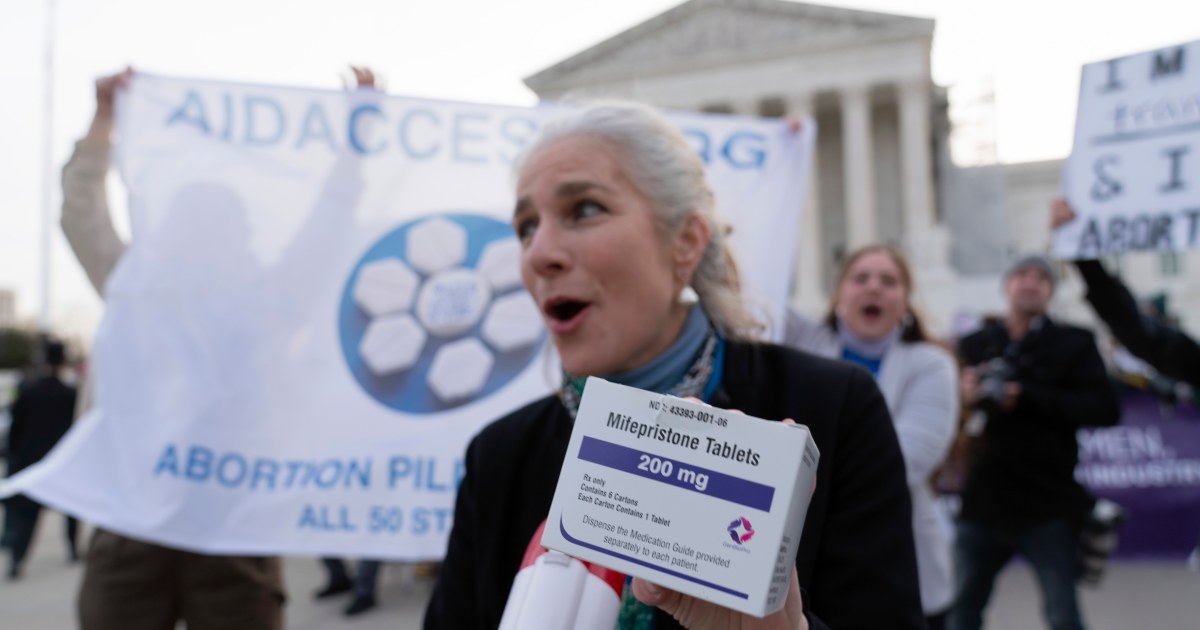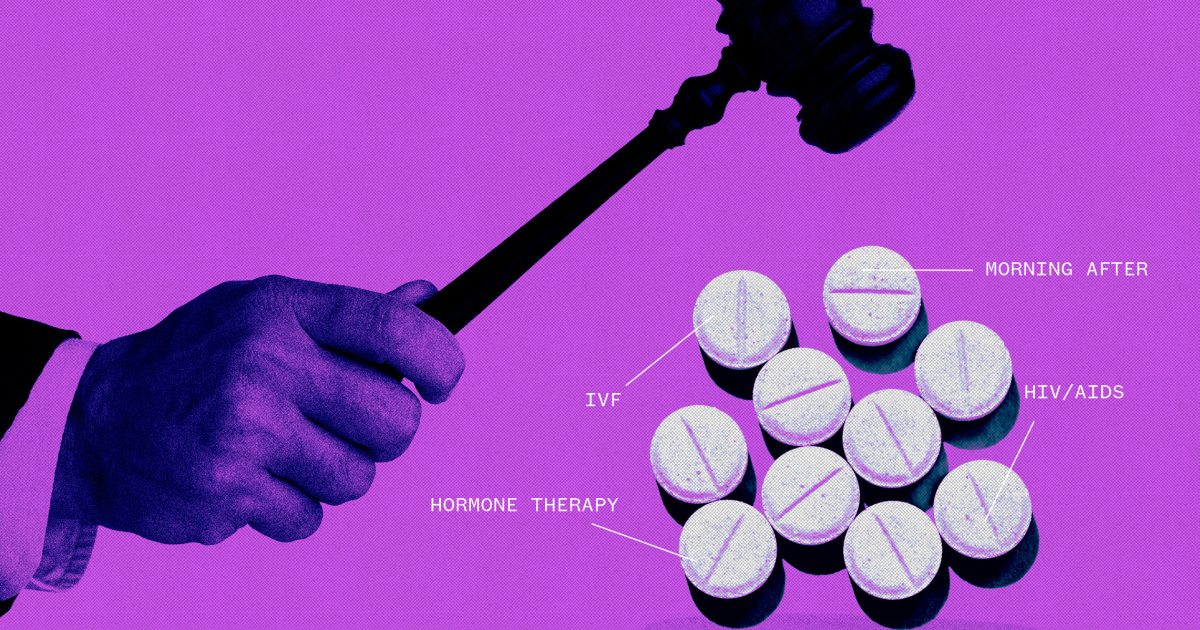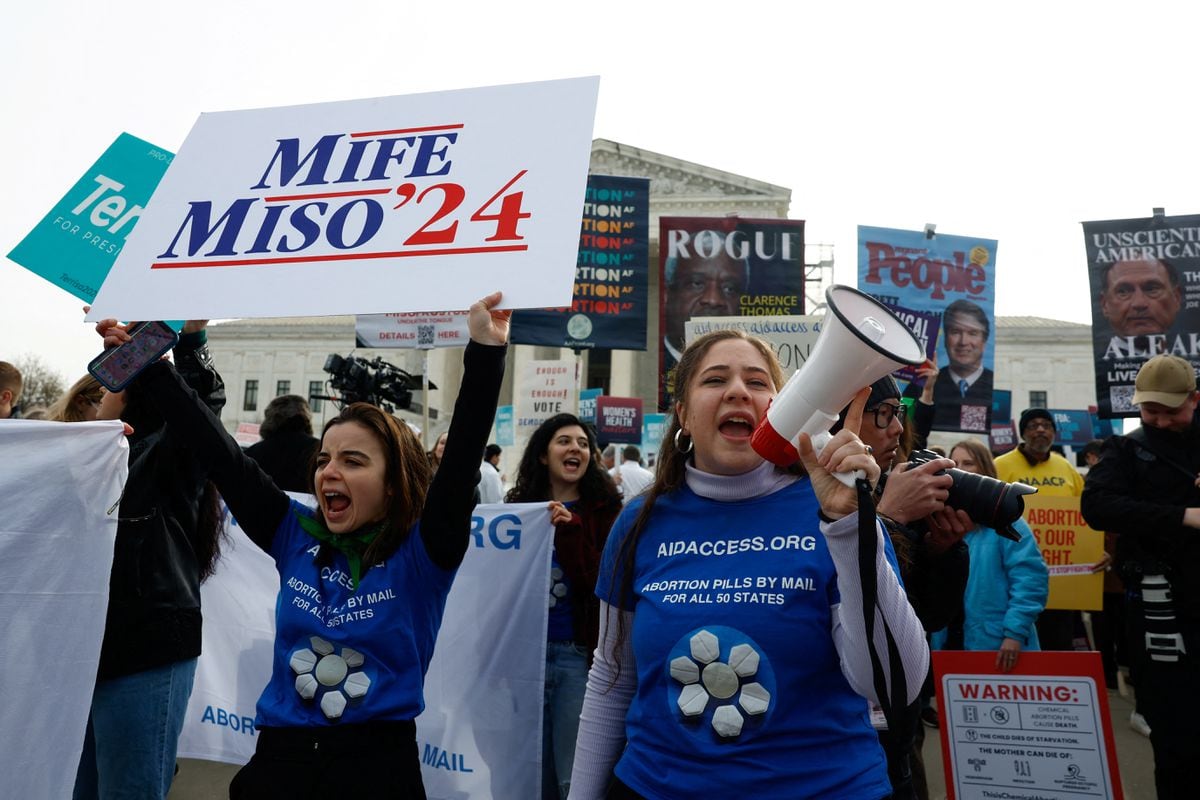Enlarge image
Marie Stopes clinic in the Kibera slum in Nairobi, Kenya
Photo: Kate Holt/eyevine/laif
Lilly* first thought of her parents, then of her acquaintances and neighbors: "They will judge me," she was sure.
She even condemned herself for making this meaningless affair suddenly so significant.
Lilly had just turned 18 and was now unintentionally pregnant.
The young woman from Kibera, the largest slum in Kenya's capital Nairobi, was faced with a choice: either keep the child as a single mother without income and family support, or terminate the pregnancy.
»When the children of rich parents in Kenya become pregnant, they are simply young and inexperienced and can hope for help.
But if we get pregnant in the slum, it's a crime," she says.
Like tens of thousands of young women in Kenya, Lilly opts for the most dangerous of all options: she takes the abortion into her own hands.
The young woman gets bleach and swallows it.
When that doesn't have the desired effect, a friend gets her another chemical, but Lilly still doesn't know exactly which one.
She first loses the fetus, then unconscious.
An acquaintance takes her to a clinic run by the non-governmental organization Marie Stopes, where they are able to save her life.
“So many women here in the slum die from secret abortions.
They should legalize it, then that won't happen either," demands Lilly.
But there are powerful groups in Kenya who know how to prevent this.
On Friday you could see how these groups proceed.
The Kenya Christian Professionals Forum had invited to the so-called family symposium, the topic: "Farming and caring for strong and resilient families." In the short term, the meeting did not take place at a Christian university as planned, but was declared an "online webinar".
And the abortion opponents had many helpful tips for their listeners with them.
An uninhibited anti-abortion movement creates a mood
One of the speakers railed against feminism, proudly declaring, "I'm not a feminist!" Men and women aren't the same, and feminism supports pornography and that ultimately destroys the family.
Then Ann Kioko took over the microphone, she is the face of an uninhibited anti-abortion movement on the continent.
"We must wake up," she cried, "We are dealing with powerful opponents.
Opponents who campaigned for abortion, homosexuality and masturbation, in their view, great moral evils.
One should avoid the media, Kioko demanded – they have a left-wing agenda.
Political parties are now needed that work against this agenda and for families.
A clear signal to the politicians in Kenya that there are elections in the country in August and they cannot be won without the votes from the Christian camps.
Ann Kioko is CitizenGo's Africa representative, she marches at pro-life rallies and then says sentences like »Abortion is murder«.
She once plugged into a session of the UN Human Rights Council, where she cried out, "We shouldn't let western countries set our agenda," that's "cultural imperialism."
In other words, abortion is un-African.
Kioko likes to use these supposedly anti-colonial motifs, they are well received.
What she doesn't mention: CitizenGo is a Spanish organization founded by Ignacio Arsuaga and belongs to the extreme right-wing conservative network HazteOir.
It has illustrious supporters ranging from Russian oligarchs to US evangelicals to the Vatican.
HazteOir and CitizenGo maintain close contacts with extreme right-wing parties such as Vox in Spain or the AfD in Germany.
The supposed imperialism that Kioko professes to fight – it funds her livelihood and her campaigns.
Kioko has not yet been reached for comment.
CitizenGo is now active worldwide and presents itself as a "community of active citizens".
The specialty of the foundation: online petitions and social media campaigns against bills that want to legalize abortions.
CitizenGo finds the perfect conditions in Kenya: a comparatively conservative population, a powerful Catholic Church and priests whose words count more than those of politicians when in doubt.
In 2019, a small group of politicians dared to do it anyway: They introduced a law that should at least make access to advice on sexual health, contraception and pregnancy easier.
The activists around Ann Kioko immediately went up in arms, branding it an “abortion law”.
With success: it has not been decided to this day.
At CitizenGo, the line between legitimate lobbying and questionable means is fluid
MP Millie Odhiambo later tried to introduce another bill that would regulate, among other things, surrogacy and in vitro fertilization.
She, too, became a CitizenGo target shortly thereafter.
“They spread so much disinformation, they incited hatred.
Above all, they wanted to influence the Christian members of parliament,” says the politician.
The result: This legislative project has also been suspended to this day.
At CitizenGo, the line between legitimate lobbying and questionable funds is fluid, as a recent study by the Mozilla Foundation suggests.
She examined the foundation's social media campaigns in Kenya and found that numerous dubious Twitter users artificially generated movement on the short message service as if at the push of a button, using hashtags provided by CitizenGo.
According to the author of the study, Odanga Madung, he was able to gain access to internal WhatsApp groups and get in touch with some of these users.
They told the researcher that they received the equivalent of about ten euros for their tweets.
A paid storm in a teacup.
Some posted demonstrably misleading or incorrect statements.
John Nyamu has also had to do with the powerful opponents of abortion.
The gynecologist is one of the few doctors in Kenya who offer safe abortions – if the law allows it.
This is currently only possible if there is an emergency, the mother's health is in danger or the pregnancy was the result of sexual abuse.
Attempts to intimidate doctors
In 2004, the police were at Nyamu's door and he was arrested.
The accusation: There are several dead fetuses on a busy road
been found, along with papers from his former clinic.
The press was already at the scene of the crime, apparently a concerted action.
To this day it is unclear who exactly was behind it.
Nyamu was charged with murder and served more than a year in prison.
The doctor was later acquitted and the proceedings collapsed.
But the message was clear: Don't mess with the anti-abortion lobby.
»Kenya is really not an easy environment for us.
But I'm not afraid.
It was worth the sacrifice of my freedom,” says the gynecologist today.
But the attacks against him continued even after his release.
In 2019, a group of anti-abortion activists marched in front of his clinic, shouting "Nyamu has to go!" The doctor wasn't impressed by that either.
Last year, Ann Kioko from CitizenGo tried a new tactic, says Nyamu: She blacked out the abortion doctor at the medical association.
She is said to be in possession of confidential conversations between Nyamu and his clients that suggested illegal abortion counseling.
But this procedure was also unsuccessful.
Ann Kioko could not be reached when SPIEGEL asked.
In 2018, however, Kioko got away with a similar tactic: she started a petition against the organization Marie Stopes International (MSI) for allegedly illegal advertising for abortions.
Finally, the medical association got involved, and MSI had to temporarily close numerous facilities.
The authorities probably do not want to be on the supposedly wrong side.
The proponents of a more liberal policy in Kenya are now looking to the USA with great concern.
Since a landmark ruling by the Supreme Court in 1973, women have been able to legally terminate their pregnancies there.
But now a conservative majority of Supreme Court judges want to overturn this verdict, according to a leaked draft by the court.
The corresponding decision is expected in June.
"If that goes through, it will have devastating effects on Africa, too," says Nelly Munyasia of the Reproductive Health Network Kenya.
Among other things, the network campaigns for improved access to legal abortion opportunities.
“Because the US is a major donor in the field of sexual health.
If the right to abortion is overturned there, then many organizations in Kenya will also keep their hands off the issue – after all, they still want money from America,” Munyasia fears.
A similar development had already taken place under Trump.
One thing is certain: anti-abortionists in the United States would gain massive momentum from such a verdict.
At the online congress on Friday, Ann Kioko demanded that supporters also have to be built up within the Kenyan government.
But she found it long ago.
*
Name changed by editors
This contribution is part of the Global Society project
Expand areaWhat is the Global Society project?
Under the title "Global Society", reporters from
Asia, Africa, Latin America and Europe
report on injustices in a globalized world, socio-political challenges and sustainable development.
The reports, analyses, photo series, videos and podcasts appear in a separate section in the foreign section of SPIEGEL.
The project is long-term and is supported by the Bill & Melinda Gates Foundation (BMGF).
A detailed FAQ with questions and answers about the project can be found here.
AreaWhat does the funding look like in concrete terms?open
The Bill & Melinda Gates Foundation (BMGF) has been supporting the project since 2019 for an initial period of three years with a total of around 2.3 million euros - around 760,000 euros per year.
In 2021, the project was extended by almost three and a half years until spring 2025 under the same conditions.
AreaIs the journalistic content independent of the foundation?open
Yes.
The editorial content is created without the influence of the Gates Foundation.
AreaDo other media also have similar projects?open
Yes.
With the support of the Gates Foundation, major European media outlets such as The Guardian and El País have set up similar sections on their news sites with Global Development and Planeta Futuro respectively.
Did SPIEGEL already have similar projects? open
In recent years, SPIEGEL has already implemented two projects with the European Journalism Center (EJC) and the support of the Bill & Melinda Gates Foundation: the "OverMorgen Expedition" on global sustainability goals and the journalistic refugee project "The New Arrivals ", within the framework of which several award-winning multimedia reports on the topics of migration and flight have been created.
Expand areaWhere can I find all publications on the Global Society?
The pieces can be found at SPIEGEL on the Global Society topic page.





/cloudfront-eu-central-1.images.arcpublishing.com/prisa/3F3EHAP7NYDCD7NIOIZLOQJFPI.jpg)

/cloudfront-eu-central-1.images.arcpublishing.com/prisa/OCS7V4Q6YKB6UMI76BXPPNGQJE.jpg)

